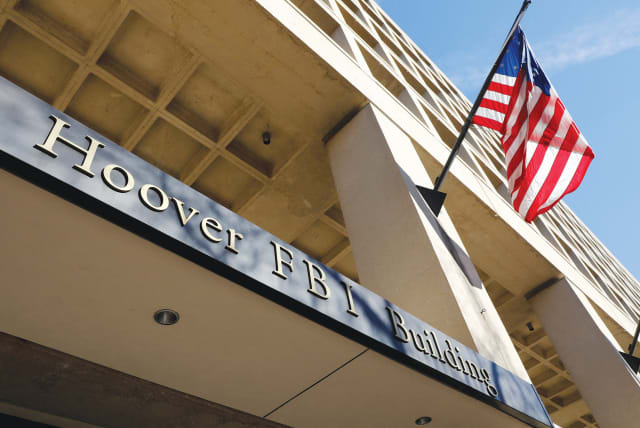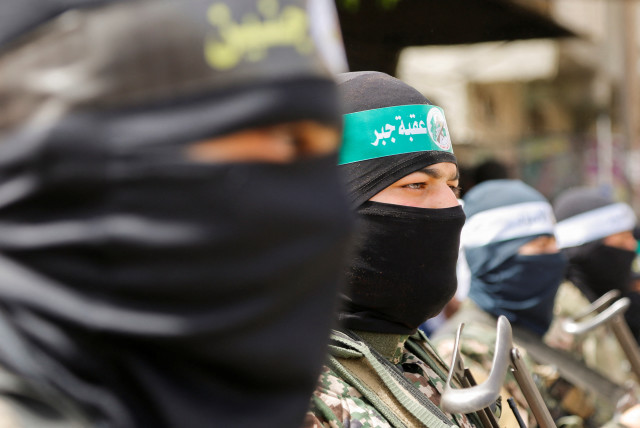The FBI's silent battle against Iranian sleeper cells - opinion

As tensions between the United States and Iran reach a boiling point, the specter and menace of sleeper terrorist cells hangs over the promise of safety and stability.
In the complicated geopolitical tapestry where national security is paramount, the silent but alarming threat of sleeper terrorist cells within the United States, purportedly orchestrated by the Islamic Republic of Iran, has become a prominent concern for the FBI and the Department of Homeland Security.
This insidious threat and menace underscore a chilling strategy – targeting not just individuals but seeking to destabilize through fear and retaliation, a tactic that underpins the Islamic Republic’s modus operandi on foreign soil. Albeit, this epitomizes the Islamic Republic’s strategy of leveraging terror to achieve its geopolitical aims.
The bold initiative and audacious plan to assassinate prominent figures closely associated with former president Donald Trump, including Brian Hook, Mike Pompeo, John Bolton, and Gina Haspel, among others, reveals a vengeful intent to retaliate for the killing of IRGC Quds Force commander Qasem Soleimani. This move not only exacerbates tensions but also ventures into the dangerous territory of state-sponsored terrorism, challenging the international norms of diplomacy and the very foundations of conflict resolution.
The ambiguous methods – whether employing proxy terrorists, hired guns, or solitary agents – lone wolves – within the United States or directly deploying its own operatives and agents – further complicate the security landscape and present a formidable challenge to national security.
The FBI's mission
The FBI’s mission extends beyond mere surveillance, delving into the monitoring of charities, religious centers, schools, and healthcare facilities with ties to Tehran’s regime. This multi-layered problem is not as straightforward as it seems, intertwined with a web of espionage, subterfuge, and the dark arts of intelligence warfare.
The historical context of the Ministry of Intelligence in Iran, helmed by eight clerics since its establishment, sheds light on a systematic approach to assassination fatwas deemed legitimate by Shi’ite jurisprudence.
These criminal mullahs, namely Mohammad Reyshahri (1984-1989), Ali Fallahian (1989-1997), Ghorbanali Dorri-Najafabadi (1997-1999), Ali Younesi (1999-2005), Gholam Hossein Mohseni-Ejehei (2005-2009), Heydar Moslehi (2009-2013), Mahmoud Alavi (2013-2021), and Esmaeil Khatib (2021-present), presided over a dark legacy of silencing opposition through targeted killings, underscoring the regime’s unyielding pursuit of control.
In reality, the tenure of these Shi’ite mullahs has seen the execution of hundreds of regime opponents, both within Iran’s borders and abroad, showcasing a relentless pursuit of power preservation at any cost.
The narrative of Iranian operatives’ activities, marked by both thwarted plots and grim successes, especially against Israeli interests, underscores a broader strategy of intimidation that transcends regional boundaries. Yet, the endeavor to conduct operations on American soil introduces a complex array of challenges, as evidenced by the elaborate and multi-tiered nature of these conspiracies.
The Islamic Republic’s aggressive posture, underscored by President Ebrahim Raisi’s assertion that seeking revenge is a duty incumbent upon the world’s Muslims, suggests a tacit readiness to disavow any direct involvement in potential attacks, a classic strategy of denial and obfuscation. This declaration, juxtaposed with the actualization of threats on American and Israeli lives, starkly illustrates the perilous game of brinkmanship Tehran is willing to play.
The presence of the Islamic Republic’s military and clandestine intelligence operations in the western hemisphere represents a clear and present danger to the national security and interests of the United States. The early January 2024 assassination of three Americans, purportedly by Iran’s proxy groups, underlines a brazen willingness to strike at the heart of American life.
The politicization of such actions, including the portrayal of assassination attempts against Trump in Iranian media, reflects a broader ideological battle. It suggests that certain factions within the global political landscape might tacitly approve of such extreme measures against perceived adversaries, further complicating international relations and the pursuit of peace.
In response, the US intelligence community and counter-terrorism apparatus must navigate this precarious situation with both vigilance and strategic acumen. The multiplicity of threats, from cyber espionage to traditional surveillance, requires an adaptive and comprehensive approach to national security.
The FBI’s role in counteracting such threats, while daunting, is critical in preempting and neutralizing potential acts of terror and espionage on American soil. In other words, the FBI stands on the front lines of this clandestine war, tasked with the monumental challenge of unraveling and neutralizing these networks of hatred and violence
As tensions between the United States and Iran reach a boiling point, the specter and menace of sleeper terrorist cells – akin to a Damocles sword, a grim reminder of the ongoing conflict between extremist ideologies and democratic values – hangs over the promise of safety and stability. The resolution of this issue is not simple; it demands a concerted effort from intelligence agencies, policymakers, and international partners to dismantle these networks of hate and prevent further escalation of violence.
Until the destructive regime in Tehran sees a radical shift towards genuine peace and diplomacy, the United States, and indeed the world, must remain on high alert. The threat posed by these sleeper cells is not just a matter of national security but a stark reminder of the enduring struggle between the forces of terror and the ideals of freedom and peace.
The writer is a counterterrorism analyst and Middle East studies researcher based in Washington, with a particular focus on Iran and ethnic conflicts in the region. His newly published book is The Black Shabbat, published in the US. Follow him on X @EQFARD and www.erfanfard.com.
Jerusalem Post Store
`; document.getElementById("linkPremium").innerHTML = cont; var divWithLink = document.getElementById("premium-link"); if (divWithLink !== null && divWithLink !== 'undefined') { divWithLink.style.border = "solid 1px #cb0f3e"; divWithLink.style.textAlign = "center"; divWithLink.style.marginBottom = "15px"; divWithLink.style.marginTop = "15px"; divWithLink.style.width = "100%"; divWithLink.style.backgroundColor = "#122952"; divWithLink.style.color = "#ffffff"; divWithLink.style.lineHeight = "1.5"; } } (function (v, i) { });

